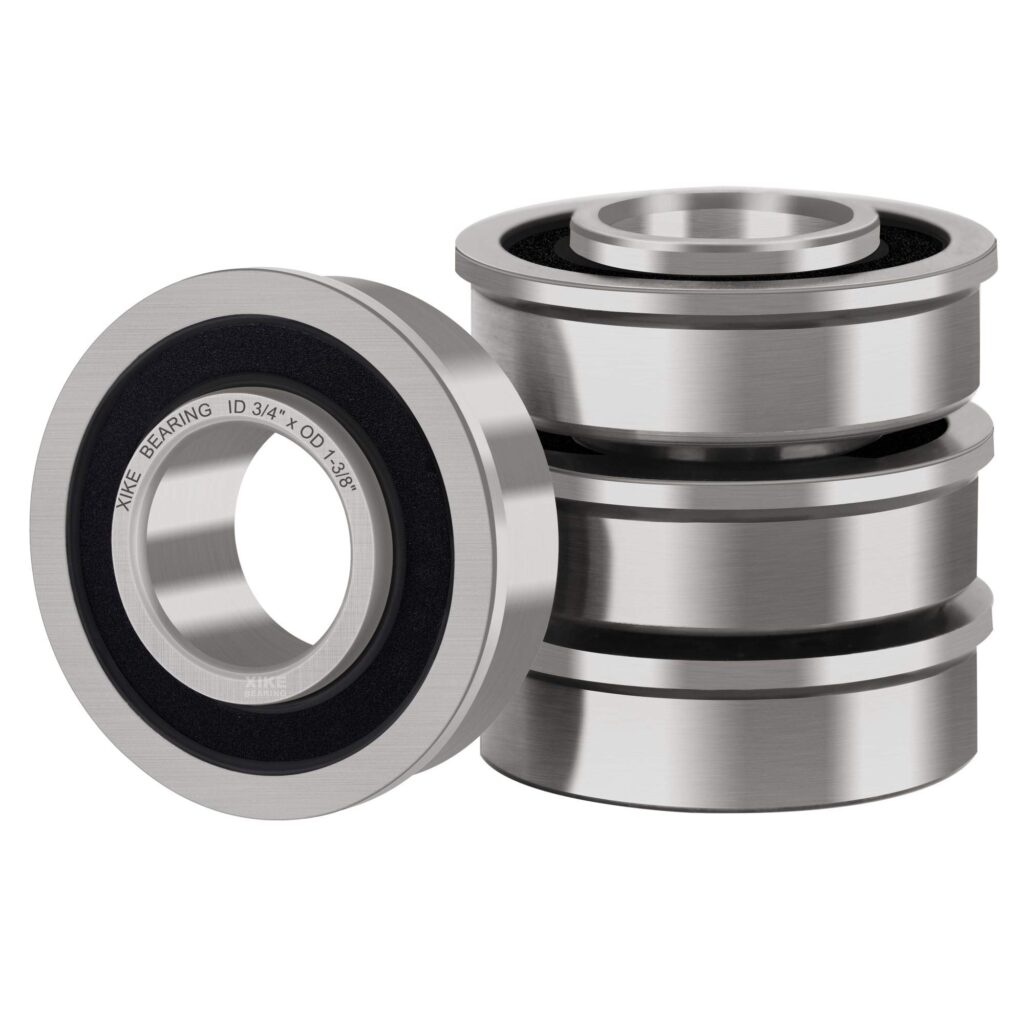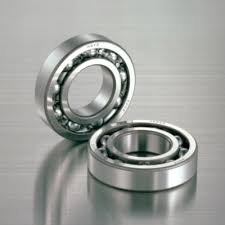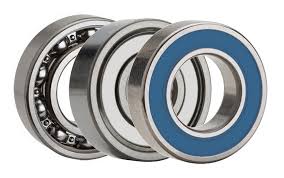Introduction
When it comes to ensuring smooth and efficient movement in heavy-duty machinery or equipment, ball bearings play a vital role. They help reduce friction, allow for rotation, and take on significant loads, making them indispensable in industries ranging from automotive to manufacturing. If you’re looking for heavy-duty ball bearing balls, especially at Bunnings, you’re probably wondering what to expect in terms of quality, performance, and cost.
In this article, we’ll dive deep into the world of Bearing Dealers in Lahore, with a specific focus on heavy-duty Bearing Dealers Near Me available at Bunnings. Whether you’re a DIY enthusiast or someone working in a more professional capacity, this guide will cover everything you need to know.
1. What Is a Ball Bearing?
Before we dive into the specifics, let’s break down what a ball bearing is. In simple terms, a ball bearing is a mechanical device that uses balls to reduce rotational friction between moving parts. These small, durable spheres create minimal contact with surfaces, enabling smooth movement and decreasing wear and tear on machinery.

Heavy-Duty Ball Bearing Balls from Bunnings
2. Importance of Heavy-Duty Ball Bearings
Not all ball bearings are created equal. For heavy-duty applications, you need bearings that are specifically designed to handle large loads and harsh conditions. Heavy-duty ball bearings are built with stronger materials and have larger load capacities, making them ideal for industrial equipment, trucks, and other demanding machinery.
3. Why Choose Bunnings for Heavy-Duty Ball Bearings?
Bunnings is known for offering a wide variety of tools and hardware, including heavy-duty bearing sales near me. Whether you’re building something from scratch or repairing heavy machinery, Bunnings provides affordable and reliable options. Additionally, their availability and customer service make it convenient for professionals and DIY enthusiasts alike.
4. Types of Heavy-Duty Ball Bearings Available at Bunnings
Bunnings offers a variety of ball bearing types suitable for different applications:
- Deep Groove Ball Bearings: Known for their high speed and load capacity.
- Angular Contact Ball Bearings: Ideal for applications where axial loads are present.
- Thrust Ball Bearings: Designed to handle axial loads exclusively.
Each type serves a different purpose, and choosing the right one depends on your specific needs.
5. Key Features to Look for in Heavy-Duty Ball Bearings
When selecting heavy-duty ball bearings at Bunnings or elsewhere, there are a few key features you should consider:
- Material: Look for durable materials like stainless steel or chromium steel.
- Load Capacity: Make sure the bearing can handle the weight and forces applied in your application.
- Size and Fit: Ensure the ball bearing fits the shaft or housing correctly.
- Lubrication: Bearings should be pre-lubricated or compatible with external lubrication.
6. The Role of Lubrication in Ball Bearings
One of the most critical aspects of maintaining ball bearings is proper lubrication. Without it, friction increases, which can lead to faster wear and potential failure. Many of the heavy-duty ball bearing balls available at Bunnings come pre-lubricated, but regular maintenance is crucial to ensure optimal performance over time.
7. Common Applications for Heavy-Duty Ball Bearings
Ball bearings are used in a wide range of industries, particularly in applications where heavy loads and frequent motion are involved. Some common uses include:
- Automotive Industry: Heavy-duty ball bearings are commonly found in car engines, transmissions, and wheel hubs.
- Construction Machinery: Large construction equipment like bulldozers and cranes rely on these bearings for smooth movement and operation.
- Industrial Equipment: Conveyor belts, pumps, and turbines all use ball bearings to reduce friction and prolong the life of the machinery.
8. How to Install Heavy-Duty Ball Bearings
Installing heavy-duty ball bearings may seem intimidating, but it’s a manageable task with the right tools and a bit of patience. Follow these steps:
- Clean the Housing: Ensure the area where the ball bearing will sit is clean and free from debris.
- Press the Bearing: Use a press to insert the bearing into the housing, ensuring even pressure.
- Secure the Bearing: Once installed, check that the ball bearing is secure and aligned properly with the shaft.
9. Common Mistakes to Avoid When Using Ball Bearings
There are a few common mistakes that can shorten the lifespan of your ball bearings:
- Overloading: Avoid exceeding the load capacity of your bearings.
- Improper Lubrication: Failing to lubricate properly can lead to premature wear.
- Misalignment: Ensure that the bearing is installed correctly to avoid stress on the balls.
10. Maintenance Tips for Longevity
To ensure that your heavy-duty ball bearings last as long as possible, follow these maintenance tips:
- Inspect Regularly: Check for signs of wear or damage.
- Keep Lubricated: Always make sure your bearings are properly lubricated.
- Avoid Contaminants: Dirt and debris can damage the bearing, so keep the area clean.
11. Comparing Ball Bearings to Other Types of Bearings
While ball bearings are incredibly versatile, there are other types of bearings that might suit specific needs better, such as:
- Roller Bearings: Better suited for higher load capacities.
- Tapered Bearings: Used in applications where both axial and radial loads are present.
Despite these alternatives, ball bearings are often the most common and cost-effective solution.
12. Bunnings vs Other Retailers
When shopping for heavy-duty ball bearing balls, Bunnings offers a great balance of price, availability, and quality. While other retailers may offer more specialized products, Bunnings’ range is more than sufficient for most general-purpose and heavy-duty applications.
13. Price Range of Heavy-Duty Ball Bearings at Bunnings
The cost of heavy-duty ball bearing balls at Bunnings can vary depending on the size and type. On average, you can expect to pay anywhere from $5 to $50 per bearing. Larger, more specialized bearings will naturally be more expensive, but Bunnings provides a wide range of options to fit different budgets.
14. How to Choose the Right Heavy-Duty Ball Bearing for Your Needs
Choosing the right ball bearing can seem daunting, but keeping these factors in mind will help narrow down your selection:
- Weight Load: Choose a bearing that can handle the weight your application will put on it.
- Speed: Consider how fast the bearing needs to rotate.
- Environment: If your bearing will be exposed to water, dirt, or chemicals, opt for a bearing made of corrosion-resistant material.
15. Conclusion: Finding the Best Heavy-Duty Ball Bearings at Bunnings
In conclusion, heavy-duty ball bearing balls are a critical component in many industrial and automotive applications. Bunnings offers a solid selection of ball bearings to meet your needs, from deep groove to angular contact varieties. By considering factors like load capacity, material, and application, you’ll be able to find the perfect bearing for your project.
Whether you’re a DIY enthusiast or a professional in need of industrial-grade solutions, Bunnings has you covered when it comes to heavy-duty ball bearings. With a bit of research and proper maintenance, your ball bearings will keep your machinery running smoothly for years to come.
FAQs
1. Can I use heavy-duty ball bearings for high-speed applications?
Yes, many ball bearings are designed to handle high-speed applications, especially deep groove ball bearings. Make sure to check the specifications before purchasing.
2. How often should I lubricate my ball bearings?
It depends on the application, but for most heavy-duty uses, you should inspect and lubricate your ball bearings every few months to ensure they’re running smoothly.
3. Are heavy-duty ball bearings available at all Bunnings stores?
Most Bunnings stores carry a selection of ball bearings, but availability may vary depending on location. You can check online or call ahead to confirm stock.
4. Can I replace standard ball bearings with heavy-duty ones?
In most cases, yes. Heavy-duty ball bearings are designed to handle more stress, so they can often replace standard bearings in machinery or equipment.
5. What’s the price difference between standard and heavy-duty ball bearings at Bunnings?
Heavy-duty ball bearings tend to be more expensive due to their materials and load capacity. On average, expect to pay 10-30% more than you would for a standard bearing.
For more information: Contact us SBS



0 Comments